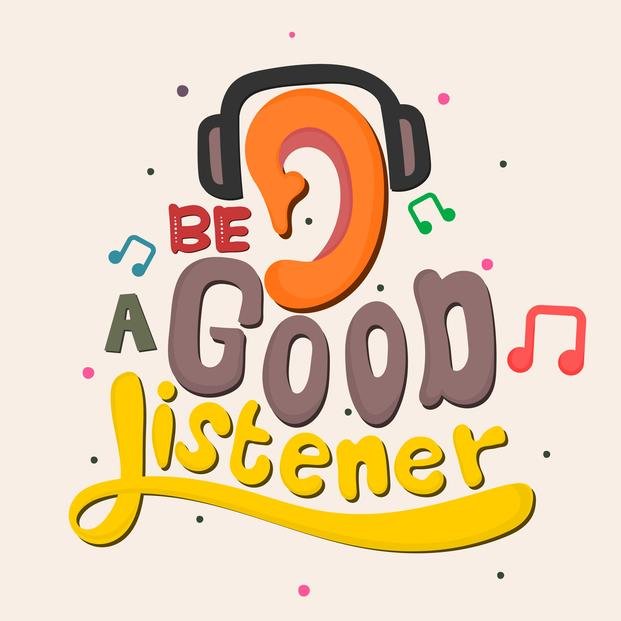A crazy thing about communication in American society is the strange power of the listener. A song isn't good unless the listener says it is good; audiences determine musical success. However, it is equally true that we aren't serious listeners until we have educated our ears. If we don't critically train our listening tastes, we could be a mindless consumer of whatever the music industry pushes our way with big ad budgets and slick promotions.
As in music, good listening counts in business. Donald Carstensen, vice president for educational services at ACT, surveyed a group of business leaders about the skills businesses are looking for in new hires. Seventy-three percent rated listening an "extremely important" skill. When Carstensen asked business leaders the percentage of high school grads with good listening skills, the result was only 19%.
Other studies over the past few decades indicate that business leaders consistently rank listening among the top five skills they expect employees to have. Naturally, listening is critical in the business environment where a mistake in understanding can cost thousands or millions of dollars, or listening to a customer or employee can make a product better and increase the bottom line.
Good and Poor Listeners
What are the characteristics of good and poor listeners? A study I conducted of 900 college and military students ages 17 to 70 showed the following traits of good and poor listeners (in order of importance).
A good listener:
- Uses eye contact appropriately.
- Is attentive and alert to a speaker's verbal and nonverbal behavior.
- Is patient and doesn't interrupt (waits for the speaker to finish).
- Is responsive, using verbal and nonverbal expressions.
- Asks questions in a nonthreatening tone.
- Paraphrases, restates or summarizes what the speaker says.
- Provides constructive (verbal or nonverbal) feedback.
- Is empathic (works to understand the speaker).
- Shows interest in the speaker as a person.
- Demonstrates a caring attitude and is willing to listen.
- Doesn't criticize, is nonjudgmental.
- Is open-minded.
A poor listener:
- Interrupts the speaker (is impatient).
- Doesn't give eye contact (eyes wander).
- Is distracted (fidgeting) and does not pay attention to the speaker.
- Is not interested in the speaker (doesn't care, daydreaming).
- Gives the speaker little or no (verbal or nonverbal) feedback.
- Changes the subject.
- Is judgmental.
- Is close-minded.
- Talks too much.
- Is self-preoccupied.
- Gives unwanted advice.
- Is too busy to listen.
Similar studies done over the last two decades by Fortune 500 trainers and business consultants have found similar results.
Be Active
On the way up the career ladder, your listening skills should improve. Hourly employees may spend 30% of their time listening, while managers often spend 60% and executives 75% or more. Does effective listening lead to promotion, or do higher-ups learn to listen better because they must? It is probably a combination. Essentially, to be more successful, you must be a better listener. Better listening is also active listening.
To be an active listener, you must begin with awareness. When do others get angry with you for poor communication? When do you have problems communicating? How were you listening at these times? It takes guts, but ask others what you could do to become a better listener. Others see our faults much better than we do. Learn about effective listening: Read books, visit the International Listening Association's website for tips or take a workshop or class on effective listening. Then be sure to practice what you learn.
Power Listening
To be a successful listener, you must also believe that listening is power. Because our society places so much emphasis on speaking as the way to win friends and influence people, good listeners can quietly have a powerful and subversive impact. You should also remember that speakers have little power without listeners. Speakers share their wisdom and try to persuade, but listeners make meaning of what is heard; they make the ultimate decision to act on what they hear.
Michael Purdy is the co-author of "Listening in Everyday Life."
Find the Right Veteran Job
Whether you want to polish your resume, find veteran job fairs in your area or connect with employers looking to hire veterans, Military.com can help. Sign up for a free Military.com membership to have job postings, guides and advice, and more delivered directly to your inbox.











